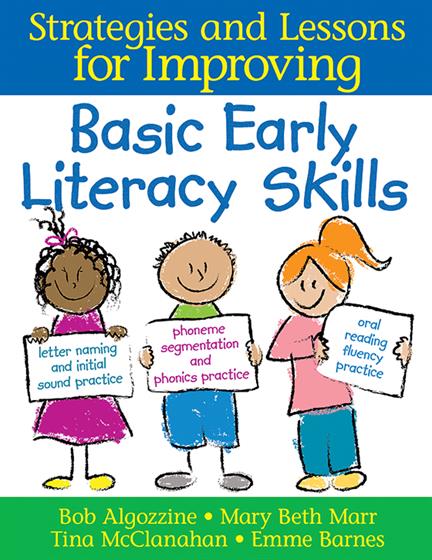Hands-on, Practical Guidance for Educators
From math,
literacy, science, equity, multilingual learners, and SEL, to assessment, school counseling,
and education leadership, our books are research-based and authored by experts
on topics most relevant to what educators are facing today.

Strategies and Lessons for Improving Basic Early Literacy Skills
Research-proven strategies to foster early literacy success!
This hands-on guide shows teachers how to use research-based strategies and structured lessons to teach essential skills for literacy success in Grades K–3. Designed by literacy specialists and teachers, the activities build proficiency in letter naming, initial sound fluency, phoneme segmentation, nonsense word fluency, and oral reading. Addressing the needs of a diverse classroom, this book offers:
- Assessment guidelines and tools that inform instruction and adjust teaching to support individual learning needs
- An array of ready-to-use strategies, tips, and reproducibles
- Research on teaching early literacy skills to all students
- Grade Level: PreK-12
- ISBN: 9781412952866
- Published By: Corwin
- Year: 2008
- Page Count: 232
- Publication date: April 07, 2014
Review Copies
Review copies may be requested by individuals planning to purchase 10 or more copies for a team or considering a book for adoption in a higher ed course. Request review copy



